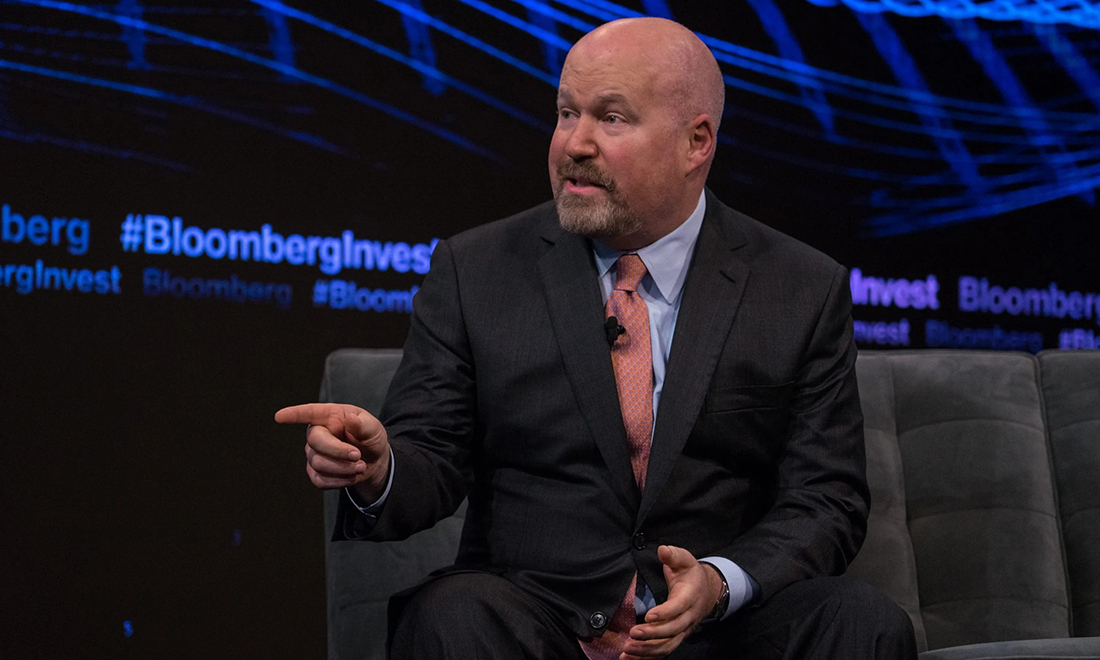
过去三十年,美国股市的表现一直傲视全球,但AQR资本管理公司(AQR Capital Management)的联合创始人及首席投资官克里夫·阿斯内斯却认为,这种局面可能即将画上句号。
在4月28日出版的《投资组合管理杂志》(The Journal of Portfolio Management)的一篇文章里,这位亿万富翁投资者指出,美股估值与其他国家股票估值的差距越拉越大。他在文中写道:“回望过去,自1990年以来,美国股市表现优异,主要表现为造富效应优于其他国家的股市。现在,美股相对估值已经处于历史高位,走弱概率大幅提升,此时继续押注美股能够带来超额回报或许并非明智之举。”
阿斯内斯是投资组合多样化的忠实拥趸,实践也证明,这种做法有助于提高投资的长期回报。他认为,根据周期调整市盈率(CAPE),国际股票的相对价值现在已经凸显,美国投资者应该将目光投向国际市场,分散自己的投资组合。周期调整市盈率由诺贝尔经济学奖获得者罗伯特·席勒于1988年提出,长期以来一直是最受投资者喜爱的股价高低衡量方法之一。该方法试图通过观察经过通胀调整的10年平均利润,对自然出现的企业盈利高峰、低谷进行平均,为投资者提供更为准确的相对价值衡量标准。
阿斯内斯对MSCI美国指数(MSCI USA Index,追踪美国大、中盘股)和MSCI EAFE指数(MSCI EAFE Index,追踪欧洲、亚洲、加拿大和澳大利亚等21个发达国家的大、中盘股票)的周期调整市盈率进行了比较,结果发现,美股对其他国家股票的相对估值在2021年达到了历史最高水平,而且现在仍然维持在这一水平附近。阿斯内斯认为,“估值很重要。相关研究证明,假设某国资产估值较低(与基本面相比价格较低),那么购买该国资产的长期预期回报就会更高,这也符合简单的经济逻辑。”
考虑到阿斯内斯成就斐然的职业生涯,他的建议颇有借鉴价值。20世纪90年代初,阿斯内斯从芝加哥大学(University of Chicago)毕业,拿到了金融学博士学位,随后开始在高盛资产管理公司(Goldman Sachs Asset Management)的“定量研究”部门工作,并参与开发了一套使用模型判断市场趋势的数学建模投资方法。
1995年,阿斯内斯团队在高盛内部成立了一只对冲基金,第一年就给投资者带来了140%的回报。该基金最终以高盛全球阿尔法基金(Goldman Sachs Global Alpha Fund)的名义向公众推出,在短短两年之后,阿斯内斯就成为了高盛定量研究小组的掌舵人,管理着多达70亿美元的资产。
随后,阿斯内斯在1998年与大卫·卡比勒、约翰·刘和罗伯特·克莱尔一起创建了AQR资本管理公司,同时带去了他的数学建模投资方法,并将该公司发展成了全球最大的对冲基金之一。2011年,《财富》杂志对AQR的转型(从只面向机构投资者的量化对冲基金转变为同时向普通消费者提供共同基金和私募基金产品的投资公司)进行了详细介绍。
不过,阿斯内斯也并非总是一帆风顺。2018年至2020年,在经历了一段漫长的低回报期后,一些投资者在2021年离AQR而去。但这位对冲基金管理人在2022年证明了自己的能力。
今年1月,彭博社(Bloomberg)援引未具名消息源报道称,虽然标准普尔500指数下降了大约20%,但AQR管理的多只基金却录得业绩新高。例如,在扣除费用后,股票市场中性全球价值(The Equity Market Neutral Global Value)策略与全球宏观(Global Macro)策略的回报率分别达到了44.7%和42.0%。而AQR运营时间最长的策略——绝对回报(Absolute Return)去年的扣费前净回报率达55%,创下自1998年以来的最佳业绩。
看好国际股票的并非只有阿斯内斯一人。贝莱德(BlackRock)的数据显示,虽然美国股市在过去10年间有8年表现优于国际市场,但在美国市场下跌时,国际市场常会走高。从历史上看,在美国股票的年化回报率低于6%时,国际股票在96%的时间里表现优于美国股市,而在美国股票的年化回报率低于4%时,国际股票的表现完胜美国股票。
贝莱德的研究人员在最近的一份报告里写道:“尽管近几年略显疲弱,但国际股票的历史表现一直颇为亮眼,过去50年,国际股票有近一半的时间表现优于美国股票。随着美国股票的回报率在未来几年走低,国际股票或将实现反超。”
瑞银全球财富管理公司(UBS Global Wealth Management)的首席投资官马克·海菲勒在5月3日的一份说明中同样表示,他认为投资者应该“增加投资多样性,不要只盯着美股和成长型股票。”
他写道:“美国股市年初走势强劲,市场对美国经济软着陆存在很高预期,但信贷条件收紧、企业盈利下降以及相对较高估值都是摆在我们面前的风险。相比之下,由于美元疲软、商品价格上涨、盈利增长强劲,加之中国的经济复苏强于预期,我们对新兴市场的股票更感兴趣,当然,欧洲也有一些机会。”(财富中文网)
译者:梁宇
审校:夏林
过去三十年,美国股市的表现一直傲视全球,但AQR资本管理公司(AQR Capital Management)的联合创始人及首席投资官克里夫·阿斯内斯却认为,这种局面可能即将画上句号。
在4月28日出版的《投资组合管理杂志》(The Journal of Portfolio Management)的一篇文章里,这位亿万富翁投资者指出,美股估值与其他国家股票估值的差距越拉越大。他在文中写道:“回望过去,自1990年以来,美国股市表现优异,主要表现为造富效应优于其他国家的股市。现在,美股相对估值已经处于历史高位,走弱概率大幅提升,此时继续押注美股能够带来超额回报或许并非明智之举。”
阿斯内斯是投资组合多样化的忠实拥趸,实践也证明,这种做法有助于提高投资的长期回报。他认为,根据周期调整市盈率(CAPE),国际股票的相对价值现在已经凸显,美国投资者应该将目光投向国际市场,分散自己的投资组合。周期调整市盈率由诺贝尔经济学奖获得者罗伯特·席勒于1988年提出,长期以来一直是最受投资者喜爱的股价高低衡量方法之一。该方法试图通过观察经过通胀调整的10年平均利润,对自然出现的企业盈利高峰、低谷进行平均,为投资者提供更为准确的相对价值衡量标准。
阿斯内斯对MSCI美国指数(MSCI USA Index,追踪美国大、中盘股)和MSCI EAFE指数(MSCI EAFE Index,追踪欧洲、亚洲、加拿大和澳大利亚等21个发达国家的大、中盘股票)的周期调整市盈率进行了比较,结果发现,美股对其他国家股票的相对估值在2021年达到了历史最高水平,而且现在仍然维持在这一水平附近。阿斯内斯认为,“估值很重要。相关研究证明,假设某国资产估值较低(与基本面相比价格较低),那么购买该国资产的长期预期回报就会更高,这也符合简单的经济逻辑。”
考虑到阿斯内斯成就斐然的职业生涯,他的建议颇有借鉴价值。20世纪90年代初,阿斯内斯从芝加哥大学(University of Chicago)毕业,拿到了金融学博士学位,随后开始在高盛资产管理公司(Goldman Sachs Asset Management)的“定量研究”部门工作,并参与开发了一套使用模型判断市场趋势的数学建模投资方法。
1995年,阿斯内斯团队在高盛内部成立了一只对冲基金,第一年就给投资者带来了140%的回报。该基金最终以高盛全球阿尔法基金(Goldman Sachs Global Alpha Fund)的名义向公众推出,在短短两年之后,阿斯内斯就成为了高盛定量研究小组的掌舵人,管理着多达70亿美元的资产。
随后,阿斯内斯在1998年与大卫·卡比勒、约翰·刘和罗伯特·克莱尔一起创建了AQR资本管理公司,同时带去了他的数学建模投资方法,并将该公司发展成了全球最大的对冲基金之一。2011年,《财富》杂志对AQR的转型(从只面向机构投资者的量化对冲基金转变为同时向普通消费者提供共同基金和私募基金产品的投资公司)进行了详细介绍。
不过,阿斯内斯也并非总是一帆风顺。2018年至2020年,在经历了一段漫长的低回报期后,一些投资者在2021年离AQR而去。但这位对冲基金管理人在2022年证明了自己的能力。
今年1月,彭博社(Bloomberg)援引未具名消息源报道称,虽然标准普尔500指数下降了大约20%,但AQR管理的多只基金却录得业绩新高。例如,在扣除费用后,股票市场中性全球价值(The Equity Market Neutral Global Value)策略与全球宏观(Global Macro)策略的回报率分别达到了44.7%和42.0%。而AQR运营时间最长的策略——绝对回报(Absolute Return)去年的扣费前净回报率达55%,创下自1998年以来的最佳业绩。
看好国际股票的并非只有阿斯内斯一人。贝莱德(BlackRock)的数据显示,虽然美国股市在过去10年间有8年表现优于国际市场,但在美国市场下跌时,国际市场常会走高。从历史上看,在美国股票的年化回报率低于6%时,国际股票在96%的时间里表现优于美国股市,而在美国股票的年化回报率低于4%时,国际股票的表现完胜美国股票。
贝莱德的研究人员在最近的一份报告里写道:“尽管近几年略显疲弱,但国际股票的历史表现一直颇为亮眼,过去50年,国际股票有近一半的时间表现优于美国股票。随着美国股票的回报率在未来几年走低,国际股票或将实现反超。”
瑞银全球财富管理公司(UBS Global Wealth Management)的首席投资官马克·海菲勒在5月3日的一份说明中同样表示,他认为投资者应该“增加投资多样性,不要只盯着美股和成长型股票。”
他写道:“美国股市年初走势强劲,市场对美国经济软着陆存在很高预期,但信贷条件收紧、企业盈利下降以及相对较高估值都是摆在我们面前的风险。相比之下,由于美元疲软、商品价格上涨、盈利增长强劲,加之中国的经济复苏强于预期,我们对新兴市场的股票更感兴趣,当然,欧洲也有一些机会。”(财富中文网)
译者:梁宇
审校:夏林
U.S. stocks have consistently outperformed their international peers over the past three decades, but AQR Capital Management cofounder and chief investment officer Cliff Asness believes the streak may be coming to an end.
“Looking back, U.S. outperformance since 1990 can largely be explained by relative richening against other equity markets,” the billionaire investor wrote in an article for The Journal of Portfolio Management released April 28, describing how American stocks have become increasingly expensive compared with international counterparts. “Investors betting on continued U.S. outperformance may be making a perilous assumption that this richening will continue, despite historically high relative valuations suggesting the opposite is more likely.”
Asness is big on portfolio diversification, which has been shown to improve long-term returns. He argued that U.S. investors should look to international stocks to diversify their portfolios because they present solid relative value based on cyclically adjusted price-to-earnings (CAPE) ratios. The CAPE ratio, developed by Nobel Prize–winning economist Robert Shiller in 1988, has long been one of investors’ favorite ways of gauging if stocks are cheap or expensive. It seeks to average out the peaks and troughs that naturally occur in corporate earnings by looking at a 10-year average of profits, adjusted for inflation, giving investors a more accurate measure of relative value.
Comparing the CAPE ratio for the MSCI USA Index—which tracks large and midcap U.S. equities, and the MSCI EAFE Index—which tracks large and midcap equities across 21 developed countries in Europe, Asia, Canada, and Australia, Asness found that U.S. stocks traded at a record high valuation relative to their international peers in 2021, and remain near those levels even now. And “valuations count,” the hedge funder argued. “Research has shown, and simple economic logic would support, that countries selling at lower valuations (lower price to fundamentals) should have a higher long-term expected return.”
It may make sense to pay attention to Asness’s call, too, as the hedge funder has had a career full of repeated success. Starting at Goldman Sachs Asset Management’s “quantitative research” desk in the early ’90s while finishing up a Ph.D. in finance at the University of Chicago, Asness helped develop a mathematical approach to investing that used models to identify patterns in markets.
By 1995, Asness’s group started an internal hedge fund at Goldman that returned 140% to investors its first year. The fund was eventually rolled out to the public as the Goldman Sachs Global Alpha Fund, and in just two years Asness was at the helm of the quantitative research group that managed $7 billion within the firm.
Asness then took his mathematical approach to investing to AQR Capital Management in 1998, founding the firm alongside David Kabiller, John Liew, and Robert Krail and growing it into one of the world’s largest hedge funds. In 2011, Fortune detailed AQR’s transition from a quantitative hedge fund meant only for institutional investors into an investment firm that also offers mutual funds and private funds for average consumers.
It hasn’t always been smooth sailing for Asness, though. After a lengthy period of subpar returns between 2018 and 2020, some investors fled AQR in 2021. But the hedge funder proved his mettle last year.
The S&P 500 might have dropped roughly 20%, but multiple AQR funds managed a record performance, Bloomberg reported in January, citing unnamed sources. The Equity Market Neutral Global Value and Global Macro strategies, for example, returned 44.7% and 42.0% net of fees, respectively. And the AQR’s longest-running strategy, called Absolute Return, netted 55% before fees last year, its best performance since 1998.
Asness isn’t alone in his view that international equities are a solid option for investors either. While U.S. equities have outperformed their international counterparts eight out of the past 10 years, according to data from BlackRock, when U.S. markets have down years, international stocks offer upside. Historically, international stocks outperformed 96% of the time when U.S. stocks returned less than 6% in a year, and 100% of the time when U.S. stocks returned less than 4%.
“Despite lagging in recent years, international stocks have performed strongly throughout history, outperforming U.S. stocks during nearly half of all time periods over the last 50 years,” BlackRock’s researchers wrote in a recent report. “With lower returns forecasted for U.S. stocks over the coming years, international stocks may be primed to outperform.”
UBS Global Wealth Management CIO Mark Haefele also said in a May 3 note that he believes investors should “diversify beyond the U.S. and growth stocks.”
“After a strong start to the year, U.S. equities are pricing a high chance of a soft landing for the U.S. economy, yet tighter credit conditions, declining corporate earnings, and relatively high valuations all present risks,” he wrote. “By contrast, we like emerging market stocks, powered by a weaker dollar, rising commodity prices, strong earnings growth, and China’s stronger-than-expected recovery, alongside select opportunities in Europe.”






